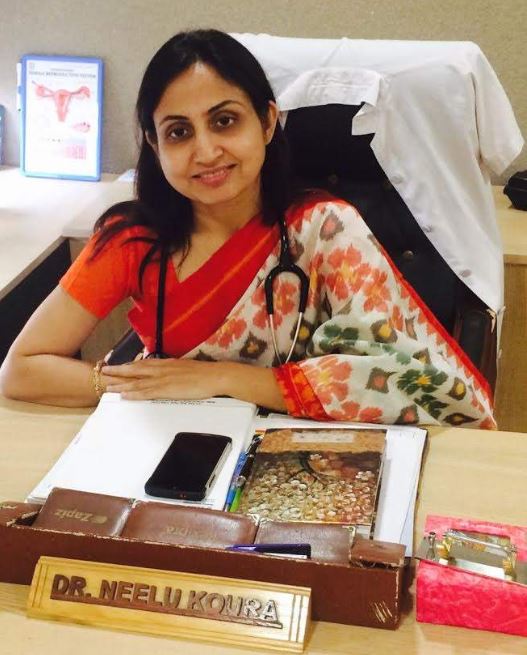Dr. Neelu Koura discusses what every sexually active girl should know. From risks to FAQs, here’s all the advice you need to practice enjoyable yet safe sex.

The age at which females become sexually active differs for everyone, and everyone’s experiences differ too. In fact, it is very normal to be nervous about losing your virginity. However, besides the first-time jitters, becoming sexually active for the first time also comes with great responsibility, which is associated with your mental and physical health.
Because of access to internet and social media, girls and women have become much more aware about the process of intercourse, which has more or less removed the fears associated with losing your virginity. But many are unaware about the precautions they should be taking before becoming sexually active, so that it becomes safer for them.

The 3 P’s of Sexual Protection
There are risks and side effects of being sexually active, including the risks of unwanted pregnancy, sexually-transmitted diseases and even the risk of cervical cancer. So let’s find out everything you need to know before becoming sexually active.
1. Protect Yourself from Sexually Transmitted Diseases
There are certain diseases like Syphilis, Hepatitis B, Hepatitis C, HIV, gonorrhea, which are sexually transmitted. This means that an infected person transmits them to another if they have unprotected sex. How to ensure that you do not get infected by these diseases without offending your partner? Of course, you cannot ask him or her to get all the tests done before you indulge with each other sexually. If you can, that would be great, but beware that negative tests don’t ensure that your partner does not have those infections. This is because your partner could be in carrier stage and can still transfer the infection. So what is the solution – use of condoms by the make partner. Usage of condoms protects both partners from cross-infection of such diseases. So ensure your new partner uses a condom.

2. Protect Yourself from Accidental Unwanted Pregnancy
If you don’t want to get pregnant, you should be very alert while or before indulging in sexual activity. Unwanted pregnancies are fairly common, and aborting a pregnancy is not a joke.
The creation of life is a miracle of nature, and it is only ethical to terminate it if it threatens the life of the mother. Abortion involves killing a human life, which many people don’t realize the value of just by seeing a positive pregnancy test. Furthermore, any pregnancy can also be associated with other complications, like tubal pregnancy or pregnancy at an abnormal site, terminating which may require a major surgery. You may not be able to get away with it by just taking pills. There may also be complications of aborting a pregnancy like excessive bleeding, incomplete abortion, infections, blockage of fallopian tubes, damage of uterine lining, etc. Some of these can be life-threatening for the female and some can make her infertile in future.
So don’t take your sexual activity lightly. It is your own responsibility to avoid unwanted pregnancy while you’re indulging yourself sexually.
Here are three best methods of protection:
- Usage of condom by male partner
- Coitus interruption if it’s an unsafe day
It’s a good idea to start keeping track of your menstrual cycle before starting your sexual activity. Check your menstrual day, and avoid sex from the 10th -18th day of your menstrual cycle. When you are very sure that your partner is reliable and can practice coitus interruption, i.e. he can ejaculate outside your vagina. This method of avoiding pregnancy needs good co-operation from your male partner, and may not be 100% effective.
– OTC pills as advised by your gynecologist

3. Protect Yourself from Cervical Cancer
Frequent sexual activity and having multiple sexual partners is again a risk factor for cervical cancer. You can avoid partly this by vaccinating yourself before you become sexually active. It provides protection to quite an extent. This vaccination has a 3 dose schedule over 6 months, and the right age for getting it is between 13-15 years.
Sexual Advice FAQs: Your Concerns Solved!
Can the doctor tell if you are sexually active
Most of the times, yes. Because vagina of sexually active women is more lax so any experienced gynecologist may even be able to tell just by looking at the opening of the vagina. Also, the hymen may not be intact in those who are sexually active. However, this is not an absolute sign that one is sexually active. This will become more apparent if a woman has indulged in sexual intercourse multiple times.
Sexually active definition
How do you get sexually active? It simply means that one has had sexual intercourse with your partner.
How to tell if someone is sexually active?
Intact hymen and a tight vaginal opening are usually signs that a woman has not been sexually active. Also, someone who has had sexual intercourse in the past usually experiences less discomfort during sex. Usually, an experienced gynecologist will easily be able to identify the physical signs of being sexually active, or even a male partner who has had intercourse with multiple partners.
How often is considered ‘sexually active’?
Your gynecologist or doctor may ask you whether you are sexually active. In these cases, it’s best to tell them the frequency of your sexual activity (how often you have intercourse), or time frame (for how long you have been sexually active).

Does losing virginity always hurt?
Yes, in my opinion. The extent or level of pain can vary from woman to woman, or how your partner deals with you. Overzealous couples can sometimes unintentionally hurt the female partner, and it can cause torrential bleeding. So if you want to avoid the pain, make sure you become comfortable with each other, and indulge in foreplay first which may lubricate you naturally. Use of lubricant can also help with the first time.
What to do if you experience pain or itching after your intercourse?
Using lubricant may help avoid pain in the vaginal area. If you have pain in the lower abdomen, consult your gynecologist. If you experience itching, use a vaginal wash. Wash yourself after intercourse and you may require vaginal tablets if the itching persists for days, because that may be due to vaginal infection, which is fairly common.

If you have pain while urinating, it may be because of urinary infection which is quite common among females. Maintain good hygiene using a vaginal wash regularly and make it a habit to wash with water after urinating; and drink plenty of water. If the burning and pain persists or is excessive, consult a gynecologist for medication.
Also read: Reproductive Health: Doctor Explains Periods, Cramps & Relief
Can you lie to your doctor about being sexually active?
If an experienced gynecologist examines a woman, most of the times she will be able to guess whether or not you are sexually active. So it’s not very helpful to lie in these cases. Doctors respect their patients’ privacy and in most cases, will not divulge your sexual history to others.
What diseases can and cannot be protected through use of condoms?
The use of condoms can reduce the risk of cross-infection for diseases like Syphillis, gonorrhea, fungal infections, other vaginal infections, HIV, HCV. Other infections like UTI (urinary tract infection), pubic lice (crabs) cannot be prevented through condom-use.
Read next:
– Pressure to Get Married Before 30 is Real: SlubTalk
– First Night Tips for Grooms: Make Your Wife Feel Comfortable & Romantic

Dr. Neelu Thapar Koura is a Obstetrician, Gynecologist and General Physician in Moga, Punjab. With an experience of 15 years in these fields, Dr. Neelu Thapar Koura is the Managing Director at Gomti Thapar Hospital, which also houses her fertility and IVF clinic. She did her MBBS from GS Medical College in 1999 and MD – Obstetrics & Gynaecology from Sardar Patel Medical College in 2004. You can find more information about these fertility treatments and Dr. Neelu Test Tube Baby Centre, and contact her by emailing [email protected].